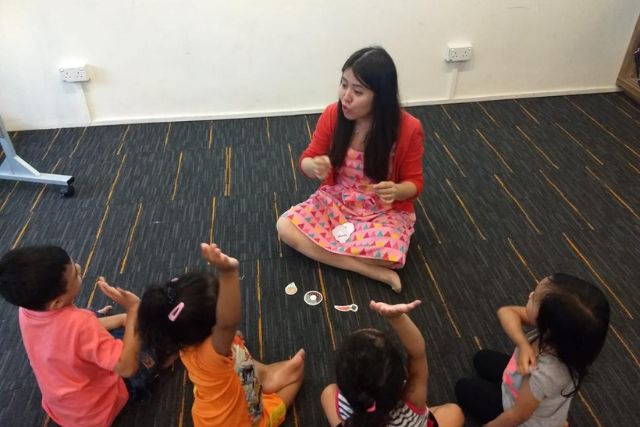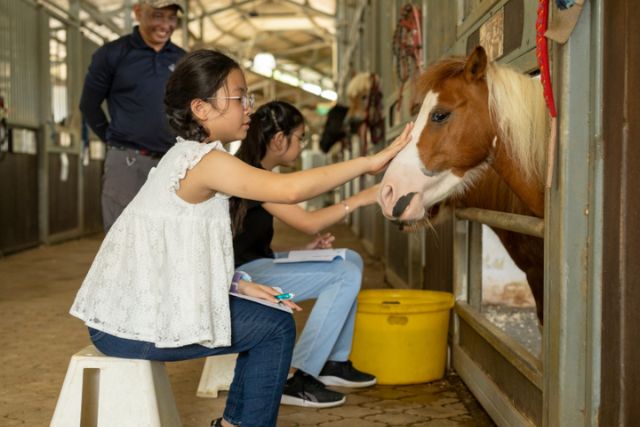When your child prefers one parent, the initial shock would quickly turn into disappointment especially if you are not the favoured parent. Fret not, and stay calm. Young children rejecting a certain parent is more common than we think.
In fact, it usually starts during their preschool years. As your preschooler starts rejecting his mother or father, this may come across as a surprise. Why does it happen even when both parents try to spend time with the child?

Why does your child prefer one parent?
Just as fun as the preschool years may be, this stage is also the time where your child is developing in a multitude of ways as he makes sense of our world. The growing attachment of a child is more apparent during the first three years, and changes in the family routine (e.g., the arrival of a new sibling, or child starting preschool) may bring about behavioural changes in your preschooler too.
On certain days, he may put his foot down on how he wants the preferred parent involved at various times of the day. He may want only daddy to take him to school. Other days, your sweet child may insist having daddy bathe him, and no one else should step into the bathroom.
Either way, your child is exercising decision making, exploring relationships and connections, as well as asserting his independence. The display of behaviour is really all part of his cognitive development as he learns about social interactions, while seemingly pushing all the wrong buttons.
Experts assure that it is common when preschoolers pick their favourite parents, and there are a host of reasons why your child prefers one parent. When a child prefers a parent, he is secure in your love for him. What that means is: your preschooler loves both parents although he is rejecting the other parent. However, it does not mean that your child loves the other parent any less, but merely displaying a preference.

Love and favouritism are two separate matters. Love reflects tender feelings of affection and is commonly related to devotion. Having a favourite parent is a preference, and that can make the preferred parent feel important, or more tired being the “chosen” parent. As for the unfavoured parent, it is essential to manage our emotions and remember not to take it personally.
It is not just a one-way traffic street – how parents speak of each other, or portray the other, influences the child’s preference over a parent too.
What is parental alienation?
According to Psychiatrist Richard Gardner, parental alienation addresses a more serious stage when the child rejects one parent.
“A disorder that arises primarily in the context of child custody disputes. Its primary manifestation is the child’s campaign of denigration against a parent, a campaign that has no justification. It results from the combination of a programming (brainwashing) parent’s indoctrinations and the child’s own contributions to the vilification of the target parent.”
In families when the couple’s relationship is on the rocks, there is also a higher chance of parental alienation occurring. With news such as divorce or separation going through the adults’ lives, they may intentionally or unintentionally encourage a preschooler to reject the mother or father, depending on the parent who has greater influence over the child. That steers the preschooler towards choosing sides, and inevitably leading him to prefer a parent over the other.
In more extreme cases, the child’s view of the targeted parent becomes clouded with negative opinions, and eventually leads to reduced time together, resulting in reduced affection and communication.
What should you do if your child prefers one parent?
The good news? It usually happens over a short period of time – it could span over a few days or months. Preschoolers go through phases, and for your child to prefer one parent over the other, is part and parcel of them sorting their emotions en-route self-discovery.
However, should there be prolonged parental alienation, parents should review their parent-and-child relationship, and the emotions or behaviours involved between that parent and child.
It is also crucial not to take it to heart, but consider how to take on an active approach as a family to cope during this phase. Both parents should discuss about it, and come up with ways on what to do if your child prefers one parent consistently.
Tips for the ‘preferred parent’

While it might be nice being the ‘preferred parent’, that parent can take some steps to help involve the less preferred parent whom the preschooler is rejecting.
1. Involve the ‘rejected parent’ in your preschooler’s favourite activities, and let the ‘rejected parent’ play an active role during the interactions
2. Talk about a memorable incident where the ‘rejected parent’ and preschooler enjoyed a great time together, and put the ‘rejected parent’ in a positive light
3. Speak of the ‘rejected parent’ such as “It would be so much fun for daddy to help put this puzzle together!”
It takes baby steps to work, so the ‘preferred parent’ can put the ‘rejected parent’ together in the relationship equation, and build up on the parent-child relationship.
Tips for the ‘rejected parent’
Whether your preschooler is rejecting his father or mother, it is probably going to make you feel like the worst parent ever. Sometimes, it is not what you do, or did not do, but children can be unpredictable, no?
It is important to keep a brave heart to manage the situation, so here are a few gentle reminders for those challenging times:
1. Don’t be upset with your preschooler. It is most likely a temporary situation or a phase your preschooler is going through. He is having a hard time with those big emotions.
2. Keep your emotions in check. Avoid screaming or scolding your preschooler when he displays his rejection, as the negative reaction from you would leave him with a less desirable association.
3. Keep building your relationship. Mothers and fathers are hardy, and we keep trying and learning throughout our parenting journey. Find out what makes your child tick and take time towards nurturing the parent-child connection.
If your preschooler is screaming or going through a meltdown, take heart to breathe and acknowledge their emotions. The positive reinforcement helps strengthen the relationship without power struggles, and offers the child invaluable messages that the ‘rejected parent’ is capable of offering assurance while establishing confidence.
Some degree of parental exclusion is a normal developmental phase, parents will need to assess their family situation as every family is unique. As always, remain calm and assure your preschooler that you love him, as that is the essence of parenthood.
This article is contributed by MindChamps Preschool.
©2017 MindChamps Singapore. All rights reserved.
If you find this article useful, do click Like and Share at the bottom of the post, thank you.
Want to be heard and seen by over 100,000 parents in Singapore? We can help! Leave your contact here and we’ll be in touch.





















































